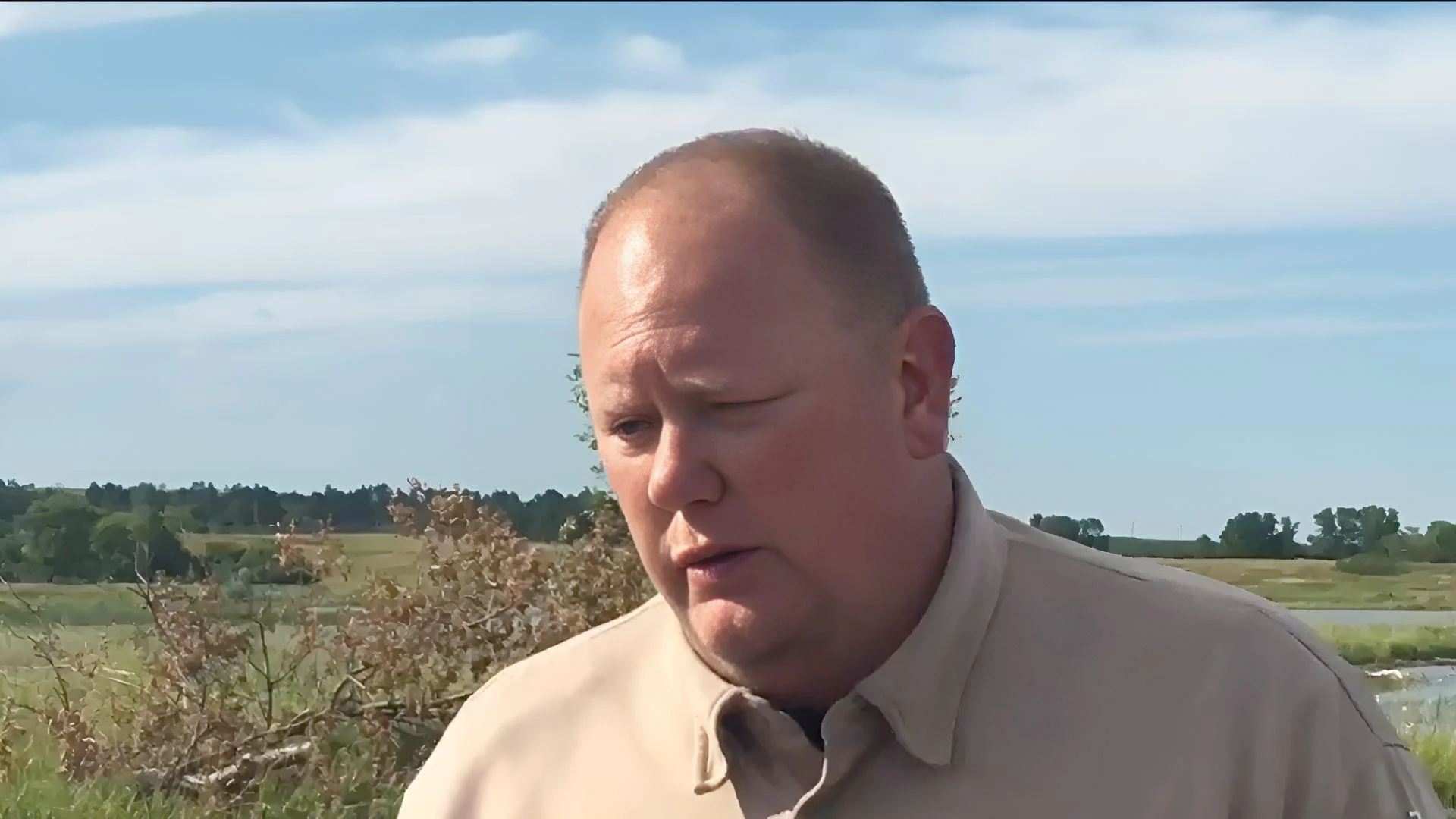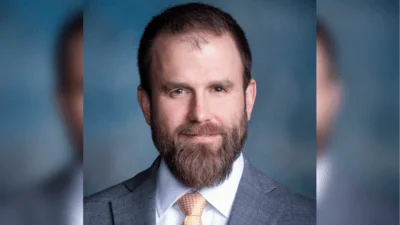Kyle Kirchmeier, Morton County Sheriff | x.com
Kyle Kirchmeier, Morton County Sheriff | x.com
On this date in 2017, the Morton County Sheriff's Department announced that it had dismantled an encampment on private property, arresting 76 people protesting the Dakota Access Pipeline (DAPL). The announcement was made in a February 1 press release.
According to the press release, the Morton County Sheriff's Department issued multiple warnings to protesters about clearing the illegal camp, located on private property just south of Backwater Bridge. The group was informed they were trespassing and was asked to leave by a specified deadline. When it appeared that the group had no intention of leaving, law enforcement closed in and arrested approximately 76 members of what they described as a "rogue group" of protesters. Sheriff Kyle Kirchmeier said, "Our law enforcement officers conducted themselves in a safe and responsible manner."
Members of the Standing Rock Sioux Tribe cooperated with law enforcement and visited the former camp to remove teepee hides and bring them back to the reservation. Authorities set up barriers on both sides of Backwater Bridge to prevent further illegal encampments. According to the press release, law enforcement said its goal was to continue coordinating with tribal and protest leaders to clear any camps due to flooding risks in the area.
The DAPL protests of 2016 and 2017 aimed to halt the construction of the reported $3.8 billion pipeline, which drew thousands to camp out in opposition, as reported by the Associated Press. The protests resulted in 761 arrests with charges ranging from trespassing to more severe offenses. A significant number of those arrested were from out of state.
In 2023, according to Legal Newsline, the Standing Rock Sioux Tribe filed a lawsuit seeking to shut down the pipeline. They accused the U.S. Army Corps of Engineers of unlawfully allowing it to operate without proper environmental assessments, an easement, or adequate emergency spill response plans. In December 2024, thirteen Republican-led states joined the lawsuit as co-defendants, arguing that shutting down the pipeline would result in $900 million in lost revenue and put nearly 10,000 jobs at risk.
The protests resulted in 761 arrests according to MPR News. Charges ranged from trespassing to more severe offenses. A significant number of those arrested were from out-of-state locations. North Dakota Special Assistant Attorney General Paul Seby mentioned that cleaning up after the protests "required a four-day cleanup of the camp and 600 bins to remove 9.8 million pounds of trash."






 Alerts Sign-up
Alerts Sign-up